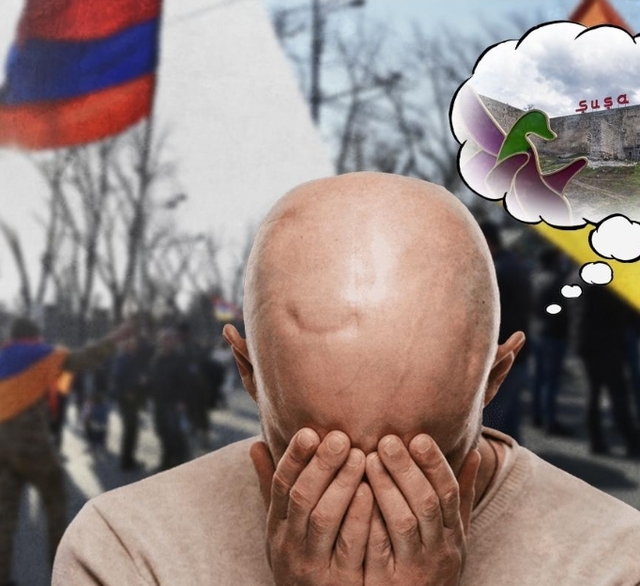Against the backdrop of the brutal military phase of the Russian-Ukrainian conflict, another important story for the post-Soviet space has been somewhat overshadowed. Namely, the development of the situation surrounding the Azerbaijani-Armenian conflict. Although significant events are also taking place here, they are not in the military sphere, but in the political arena.
On April 6, under the mediation of the President of the European Council, Charles Michel, negotiations were held between the President of Azerbaijan, Ilham Aliyev, and the Prime Minister of Armenia, Nikol Pashinyan. As a result, it was announced that the parties should establish a bilateral commission on border demarcation and delimitation by the end of April as a condition for concluding a peace agreement. Yesterday, Nikol Pashinyan, who is in Moscow, stated that during the negotiations with Putin agreement was reached on all key issues related to the settlement of the conflict.
Meanwhile, two main issues remain: the problem of the part of Karabakh that is not under the control of Azerbaijan, as well as the opening of the transit through the territory of Armenia from Azerbaijan to the Nakhchivan Autonomous Republic and further to Turkey. However, if the opening of such a transit corridor bypassing Armenia through the territory of Iran makes the second problem less urgent, the same cannot be said about the first one.
And here the progress in the official position of Yerevan and personally of Pashinyan is evident. From the position of “Karabakh is Armenia, period”, which preceded the war, he has come to the readiness to recognize the entire Karabakh as part of Azerbaijan. And now he talks about the need for Armenians to lower their demands and seek security guarantees for the Armenian population remaining in the currently uncontrollable territory of Baku.
If he had adopted this position earlier, the war could have been avoided. At that time, Baku was ready to discuss the possibilities of granting the Armenian community of Nagorno-Karabakh an autonomous status within Azerbaijan. But now the situation is both simpler and more complicated. Simpler because a significant part of the Armenian population, which gave Pashinyan a mandate for his peaceful course, has realized that Karabakh is no longer part of Armenia and that the war for it is futile for them. It is more difficult because now, after the victory in the war, for which it paid with thousands of lives of its sons, Azerbaijan is no longer ready to discuss the “status” issue.
In principle, even at this stage, it would be theoretically possible to find some compromise scenarios that would ensure both the restoration of Baku’s control over the territory of Karabakh not currently under its control and guarantees for the remaining peaceful Armenian population. For example, an Azerbaijani administration could be established there, but without Azerbaijani military and law enforcement structures. Azerbaijani flags could be hoisted there, and Azerbaijani passports could be issued to those who were not involved in war crimes and were willing to undergo amnesty. The integration of local structures into Azerbaijani structures, etc.
However, even such a scenario, which would be considered as the limit of compromise in Azerbaijan, is categorically unacceptable for the party of revenge and war, both in Armenia and in the enclave of the so-called Nagorno-Karabakh Republic. The transfer of power to Azerbaijan in any form is unacceptable for them, and Pashinyan’s agreement to recognize Nagorno-Karabakh as part of Azerbaijan is considered a betrayal, calling on Armenians to overthrow “Turk Nikol”. As a result, Pashinyan, who has made progress in negotiations with Baku, has to constantly backtrack, fearing such sentiments in Armenian society.
Nevertheless, in the end, the choice must be made by Pashinyan and the Republic of Armenia as a whole. The choice between consolidating a sustainable peace with its most important neighbor, based on mutual recognition of internationally recognized borders, and the failure of the peace process, which could lead to a new war. As a result, the conditions for a new peace for Armenia may be completely different. If there is anyone left to offer it.

